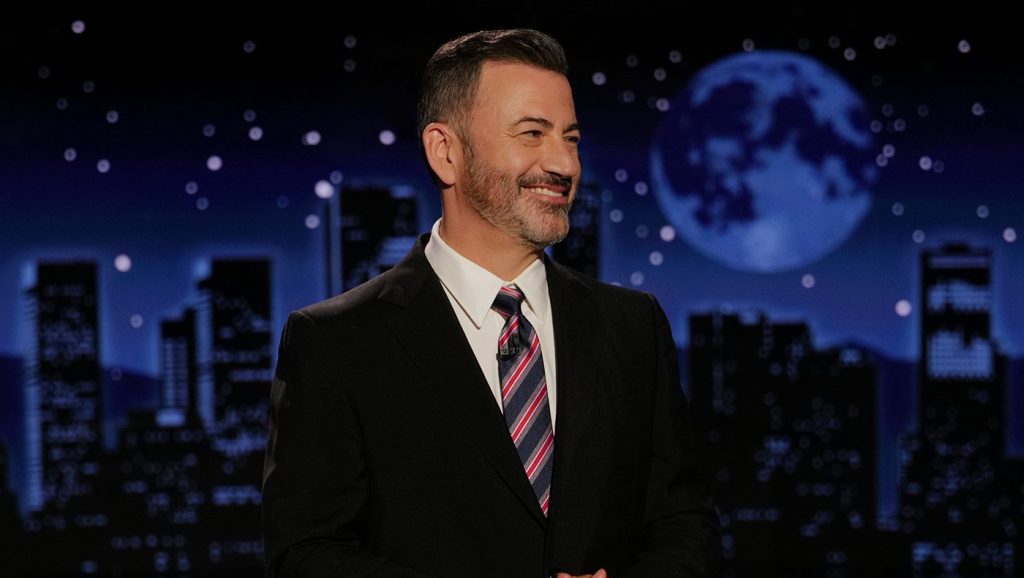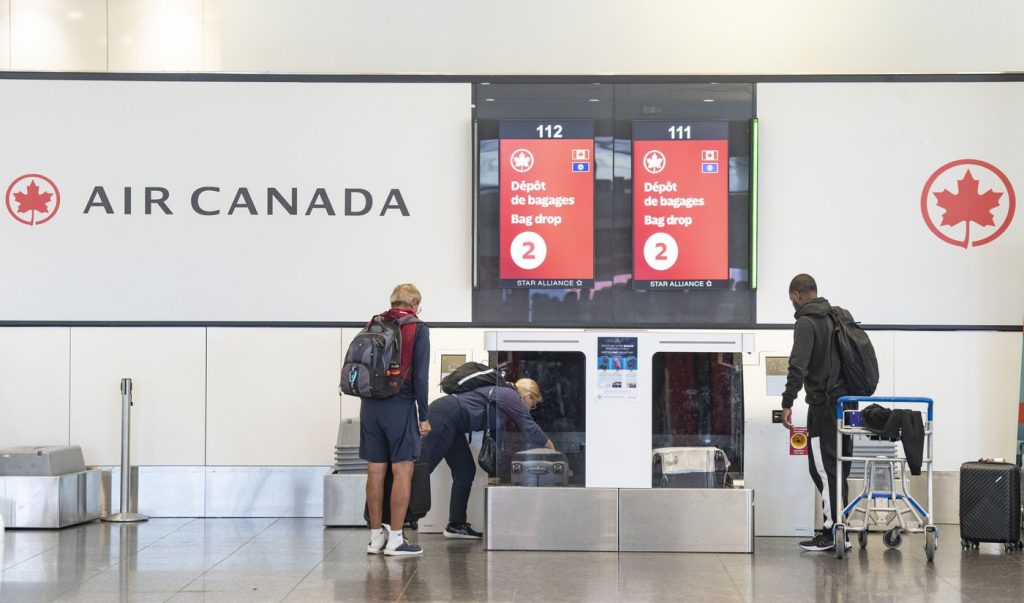LOS ANGELES (AP) – Jimmy Kimmel has returned to his ABC late-night show, yet it remains unclear when, or if, viewers in cities like Washington, Seattle, and St. Louis will be able to watch him again. Last week, ABC stations owned by Nexstar and Sinclair corporations removed Kimmel from their programming on the same day the network suspended him for comments that upset supporters of slain conservative activist Charlie Kirk. Even after ABC lifted Kimmel’s suspension, these stations continued to keep him off the air on Tuesday.
The situation has drawn attention from U.S. senators who expressed interest in investigating the relationship between the affiliate stations and the Trump administration. Upon his return, Kimmel offered an emotional monologue, refraining from apologies but emphasizing that he never intended to exploit the assassination for humor. He also paid tribute to Kirk’s widow, which led to a significant audience turnout—ABC reported nearly 6.3 million viewers who tuned in live, despite the ongoing blackouts in various cities. Online engagement was even more substantial, with over 15 million people watching Kimmel's opening remarks on YouTube by Wednesday evening, bringing the total social media viewership to more than 26 million.
Typically, Kimmel’s viewership hovers around 1.8 million on television each night. Details about viewership through streaming services were not included in ABC's report. According to a spokesman for Nexstar, Kimmel will continue to be preempted as the company assesses his show's content. Nexstar and Sinclair combined account for about a quarter of ABC’s affiliates, primarily in smaller cities such as Nashville, Tennessee; Lubbock, Texas; and Topeka, Kansas.
Nexstar stated, “We are engaged in productive discussions with executives at the Walt Disney Co., focusing on ensuring the program reflects and respects the diverse interests of the communities we serve.” This dispute has shed light on the often-complicated relationships between television networks and local stations that air their programming.
Historically, local stations occasionally have hesitated to air certain network programming, usually on an individual market basis due to language or sexual content concerns. However, this current situation marks a departure, with large station ownership groups acting collectively based on political motivations. Ted Harbert, a former executive at ABC and CBS, noted that political divisions have infiltrated an industry that once operated within “relatively orderly business” parameters.
The leadership within station ownership groups tends to lean more conservative, in contrast to the media and entertainment figures they broadcast. Ken Basin, the author of “The Business of Television,” highlighted that both Sinclair and Nexstar have reasons to appease the Trump administration, especially given Nexstar’s pursuit of regulatory approval for acquiring a rival station. "I worry that this is not going to be the only dispute of this nature in the years ahead," Basin remarked.
Disney may adopt more aggressive strategies if negotiations over Kimmel’s return drag on, potentially withholding other ABC programming, including major events like football games. The specifics of the affiliate agreements remain uncertain. However, analysts like Matt Dolgin from Morningstar Research Service believe the dispute is unlikely to escalate to that level. He noted that the station groups have less diversified business portfolios compared to Disney, and the expiration of affiliate agreements next year looms as a critical deadline.
From a business standpoint, Dolgin emphasized that Disney's best option is to navigate the issue without drawing attention to it, as the potential financial impact from Kimmel's show is minimal. The growing viewership numbers on digital platforms like YouTube indicate a diminishing influence of traditional television broadcasting, potentially undermining the negotiation position of the stations involved in the dispute.
The stakes are high for the station groups. Sinclair had initially taken a firm stance, asserting Kimmel would not return unless he apologized to Kirk’s widow and made a donation to Kirk’s political organization—a scenario that appears increasingly unlikely. Kimmel faced significant risk of losing his show entirely until pushback from free speech advocates, including many who canceled their subscriptions to Disney services.
Senators, including Elizabeth Warren and Adam Schiff, have indicated they want to investigate the actions of Nexstar and Sinclair, particularly comments indicating that censorship may have occurred in exchange for favorable official acts from the administration.
In his return monologue, Kimmel attempted to navigate the politically charged landscape, acknowledging the difficulty of his position by stating, “I don’t think what I’m going to say is going to make much of a difference.” Public reactions were polarized, showcasing the deep divisions within the current political climate. Andrew Kolvet, a spokesperson for Kirk's organization, dismissed Kimmel's remarks as inadequate, while fellow comic Ben Stiller lauded them as brilliant.












